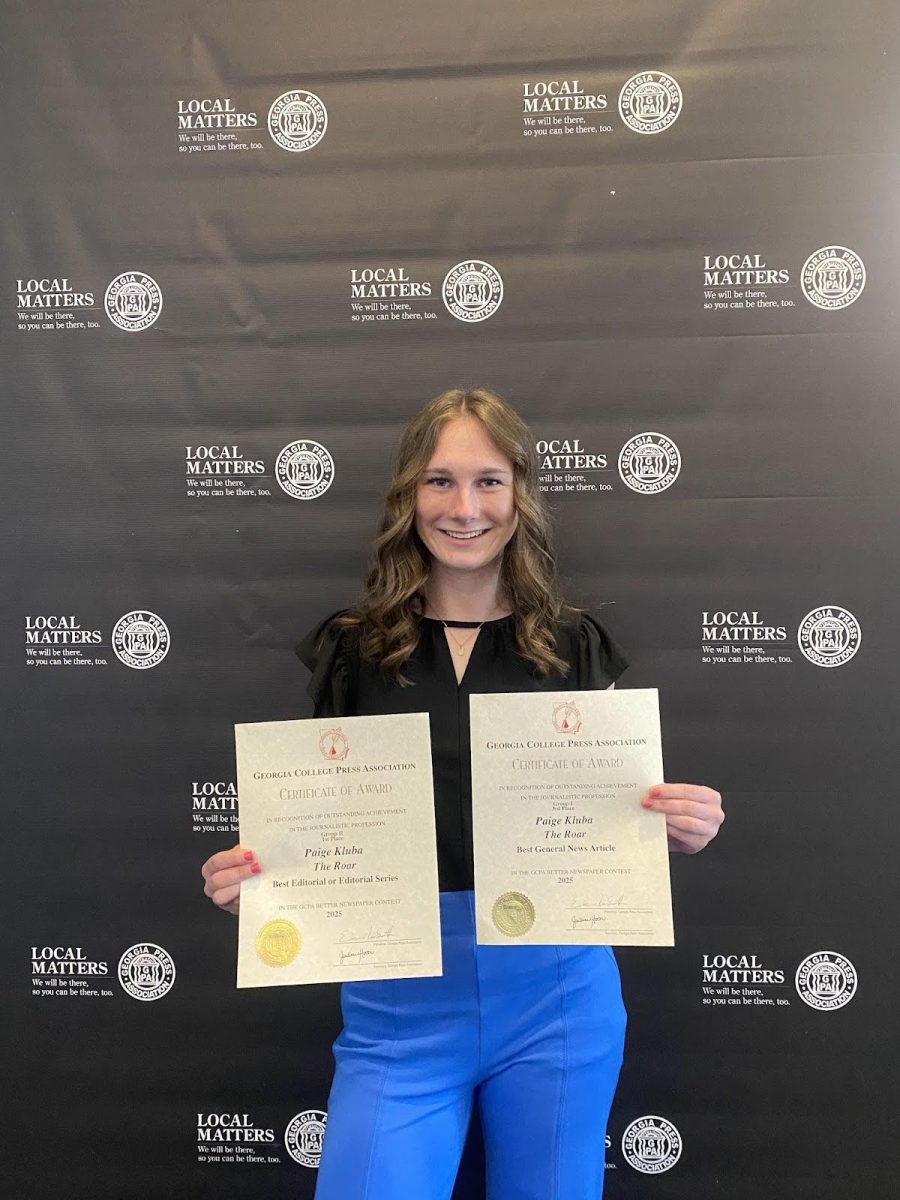Katelyn Brown was supposed to be preparing for the celebration of a lifetime. Just weeks away from high school graduation, she was heading out on a senior cruise with her closest friends, excited for sunshine and a break after a strong track season. But by the time the trip ended, Brown was not thinking about prom or graduation. She was trying to stay alive.
“I received my type 1 diabetes diagnosis on April 5, 2024, just one year ago and only six weeks before my high school graduation,” Brown said.
What began as a lingering cough and persistent thirst turned into vomiting and rapid weight loss. She visited the cruise ship’s doctor twice before her condition was fully understood.
“I was over 600 mg/dL, which is approximately six times higher than a normal blood glucose level!” Brown said. After emergency transport and a hospital transfer, she was officially diagnosed with type 1 diabetes (T1D).
“I felt overwhelmed, terrified, angry, and devastated,” she said. “My life felt over.”
Brown, now a freshman defender on the Piedmont University women’s soccer team and a Communication Sciences and Disorders major, feared her soccer career might be over before college even began. “I thought all my years of hard work and dedication to find the perfect university that would allow me to become a speech-language pathologist and play soccer at the collegiate level was for nothing.”
But from the beginning, she refused to give up. “The first question I remember asking my doctors after being diagnosed with T1D was, ‘will I still be able to play soccer?’”
The answer was yes, with caution and careful preparation.
Throughout the summer before her freshman year, Brown worked tirelessly to learn everything she could about managing her condition: how to monitor her blood sugar, count carbs, deliver insulin and adapt to exercise. She started using an insulin pump just one week before moving into her dorm.
“Looking back, I am proud of how I pushed through and handled everything,” she said.
She arrived at Piedmont not only ready to compete but determined to prove she could thrive. During the team’s beep test, which is a grueling fitness evaluation, Brown posted the second-highest score on the entire roster.
Still, game day brings a unique set of challenges. She sets her insulin pump to “activity mode” before warming up, keeps snacks and Gatorade on the sidelines and constantly monitors her levels through her Apple Watch.
“The challenges I face are not something most people see from the outside,” Brown said. “Balancing my blood sugar for optimal performance has been an astronomical task.”
Adrenaline causes her blood sugar to spike, while physical exertion brings it down. That balance, she explained, rarely stays consistent. “Sometimes during practice, I’ve had to stop to eat some gummies or applesauce because I can feel my blood sugar dropping low.”
Rather than hide her condition, Brown has taken the opposite approach—educating those around her. “When I would eat with my teammates in the caf, I knew questions would arise about why I had what looks like a second phone that I used when I ate,” she said. “I always tell my teammates that if they have questions to just ask me because I love educating and spreading awareness of T1D to others.”
Brown said she also worked closely with Piedmont’s athletic trainers to develop a plan for safely managing her diabetes on the field. “We established guidelines for preventing and treating exercise-related complications like my sugar highs and lows, as well as how to use my glucagon in case of an emergency.”
She said her coaches and teammates have never made her feel like she was different. When she first called head coach Timmy McCormack to tell him about her diagnosis, she was met with immediate support. “He immediately reassured me that I still 100% had a place on the team, and that we would learn how to navigate my new life together.”
Brown admits there were moments when she was not sure she would be able to compete at the college level. “My first game ever living with diabetes would also be my first collegiate soccer game, which felt like a lot of pressure that I wasn’t sure if I could handle.”
But once she was on the field, something shifted. “When I came to college and realized I could compete with everyone despite my challenges, it felt like a huge victory in itself both mentally and physically.”
She continues to rely on her routines and her resolve. “I try my best to stick to a routine every day,” she said. “This not only helps me make sure I am accomplishing everything I need to do for the day, but it also helps keep my blood sugars stable.”
For Brown, soccer is about more than competition. It is about proving to herself, and to others, that a chronic illness does not define her. “It means everything to me,” she said. “After I was diagnosed, there was a moment when I truly didn’t know if I’d ever be able to step back on the soccer field again.”
“I don’t take a single practice, game, or opportunity for granted anymore.”
Now, she hopes her story can offer encouragement to others navigating similar obstacles. “Your journey to success might look a little different than a typical athlete, but diabetes makes you a more courageous and resilient person along the way.”














DVC • Apr 25, 2025 at 10:52 am
Good job!